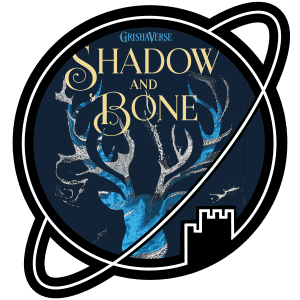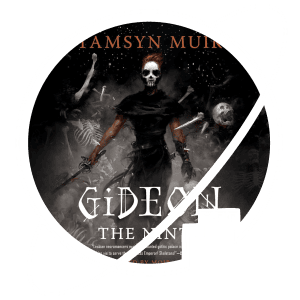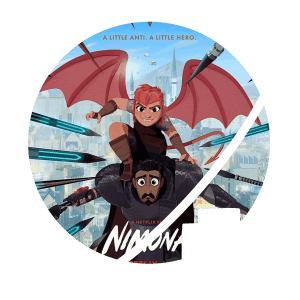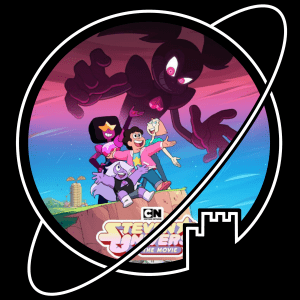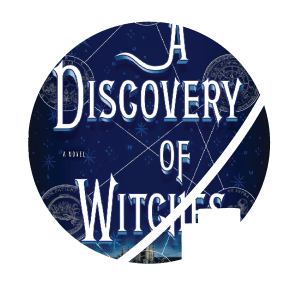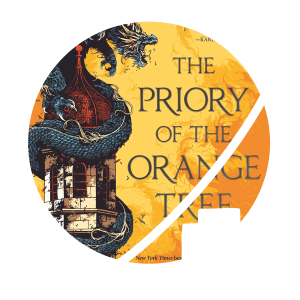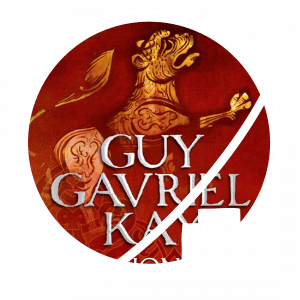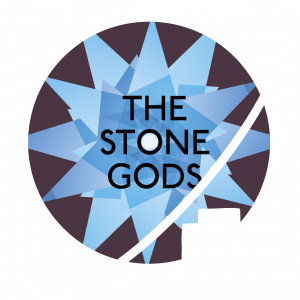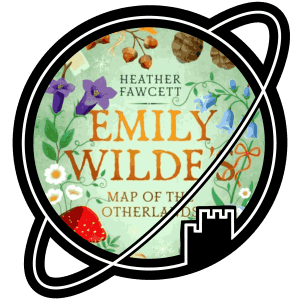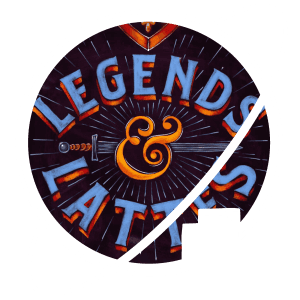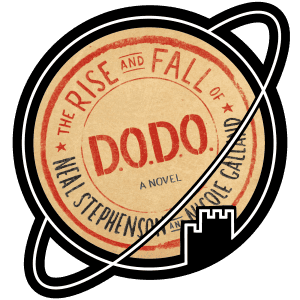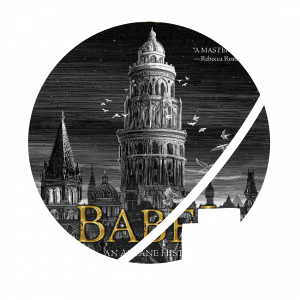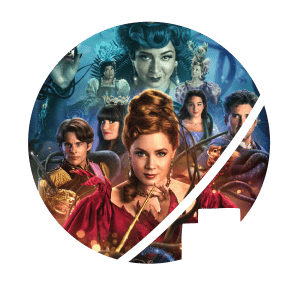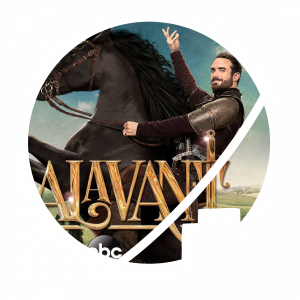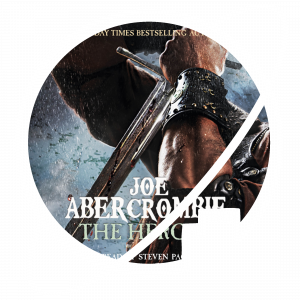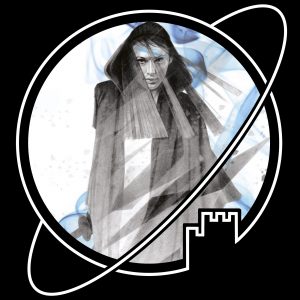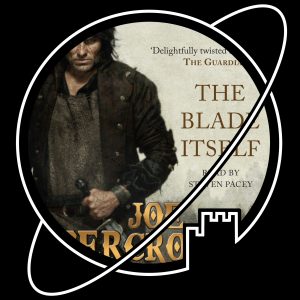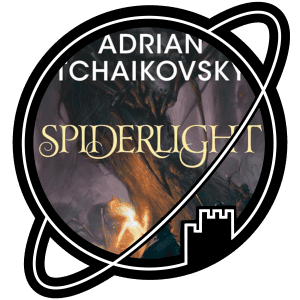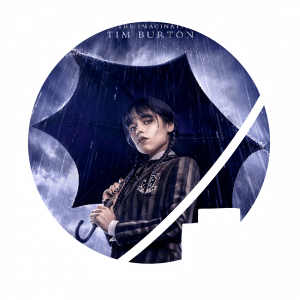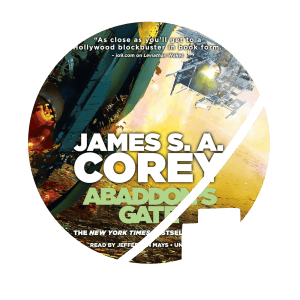A curated Collection of Fantasy and Science Fiction Media
- Novel written by David Mitchell
- Published 2 September 2014
- Standalone
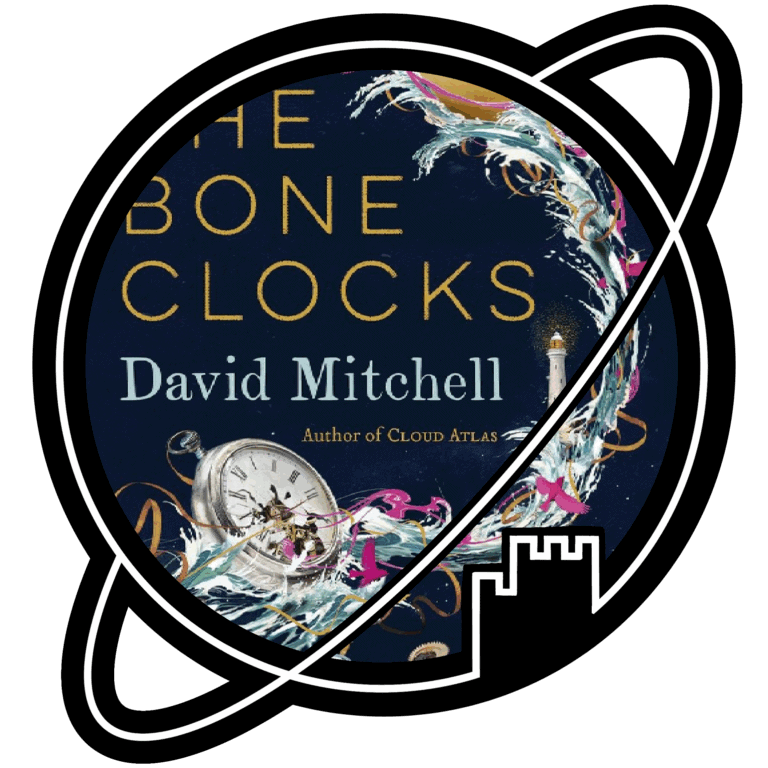

I am an absolutely massive David Mitchell fan, and for some reason that put me off reading The Bone Clocks for literal years, not because I didn’t want to, but because for some reason the time never felt ‘right’. It took me a moment of realisation to get over that and just grab it to read om my commute.
And of course, it was amazing!
Like we have come to expect from David Mitchell, The Bone Clocks is a genre-hopping (mostly) urban fantasy book with several layers of mystery.
Part of what makes this book so great is that it starts slowly, with the supernatural merely a suggestion. As the story develops and the characters and point of view shift, that weird scene at the end of the previous story slowly fades into the background – and both the reader and the character themselves start questioning the main character’s sanity.
But as Mitchell dips in and out of the supernatural and the fantasy elements become more real, the reader realises this is not just a literary story with some magical elements but a full-blown urban fantasy.
I can’t add much more detail without risking spoiling the story, but it soon devolves into an occult war with a butter soft magic system but really cool jargon.
Remember though, this is still David Mitchell. So despite all the genre-fiction going on in the background, most of the story is more about the characters than the plot, which only takes centre stage in a couple of chapters.
And, again, as we expect from Mitchell, the characters are diverse and their stories varied, from a rebellious teenage girl to a war correspondent, from a posh student to a has-been writer. And, of course, as we expect from Mitchell, their stories are expertly interlinked.
And that isn’t even all yet.
To top it all off, the final section of the book presents an (almost) stand-alone post-apocalyptic story that is so good that I almost wonder whether it could not have been material for a book on its own – the world-building is superb, especially for how short the section actually is.
Overall, I am absolutely kicking myself for not reading The Bone Clocks when it was originally released. It is one of the best books I have read in years, and if it is not on your list you are definitely missing out.
Tagged:
See also:
- Novel written by Arlette Krijgsman
- Published in 2025
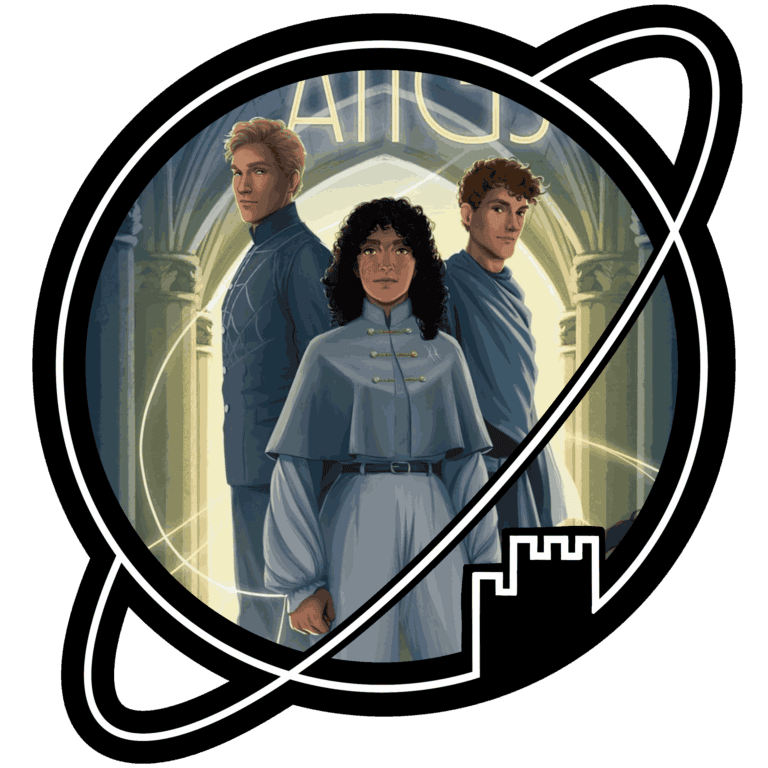

I don’t read a lot of (read: any) Dutch Fantasy. I picked up Web van Angst (Web of Fear) because it was written by Arlette Krijgsman, a member of Het Papieren Zwaard. HPZ strives to encourage and promote Dutch Fantasy. I’ve read some of their story bundles, and they feature really good Dutch Fantasy stories. So when I heard Arlette had her book traditionally published after winning a writing competition, I obviously had to pick it up.
Web van Angst is a Young Adult novel, which is clear in some ways, but I would say it exceeds the age bracket in others. The cover features stunning art by Tara Spruit, in a style that does seem more geared towards younger readers, featuring the three main characters facing the front (though there’s plenty of downright cartoonish covers hiding extremely smutty adult books these days – so I guess you really can’t judge a book by its cover). The writing style is very accessible as well, and while the book deals with heavy topics, they are handled in a very respectful way.
The story itself is an exploration of such a heavy topic. In a world where fear turns into literal monsters, there’s lots of space to explore how we (should) handle fear and anxiety. The Daimons are hardly a subtle metaphor, but as a concept, they work really well, and I’m interested to see where Krijgsman takes the metaphor in the sequel(s).
The worldbuilding of Web van Angst is solid. There’s a lot going on, but it never becomes confusing. The characters are easy to relate to and feel very real. There’s definitely a lot still unsaid with regard to their backstories, but then the story isn’t over yet.
I’d definitely recommend Web van Angst if you speak Dutch and want to check out some Dutch Fantasy!
Tagged:
See also:
- Movie directed by Maggie Kang and Chris Appelhans
- Starring Arden Cho, Ahn Hyo-seop, May Hong, Ji-young Yoo, Yunjin Kim, Daniel Dae Kim, Ken Jeong, and Lee Byung-hun
- Released on June 20th, 2025
- Runtime: 100 minutes


For months, I kept hearing really good things about K-Pop Demon Hunters. Perhaps I went in with my expectations set a little TOO high, to be honest.
K-pop demon hunters isn’t a masterpiece, let me start with that. It didn’t make me cry, it didn’t make me think about, I don’t know, what it means to be human or whatever. But does a movie need to do any of those things to be enjoyable? Should we be holding all types of media to the same standards?
Forgive me for refusing to do my research on this, but I think KPDH is a kids’ movie. Some people think kids’ media is inherently less intelligent, or interesting, or GOOD than media made for adults. This is, of course, not true. Good kids’ media is often better than mediocre stuff for adults.
This very thing can be said for KPDH. For me, it strikes the perfect balance between being a fun movie that’s not too deep, whilst also having enough emotional depth to keep you invested. The plot and characters are fine, but they’re not where the movie really shines.
Where the movie shines is, of course, the music. Like, the music in this movie is phenomenal. It’s not often that the music in a movie is both wildly popular in the universe of the movie, as well as in the real world. K-Pop Demon Hunters manages to pull this off, and that’s enough to impress me.
All I missed in KPDH is a more thorough exploration of what it means to be part demon and if a demon is always inherently bad. The plot really made me believe that this would be its main theme, but this question remains unanswered, even though it’s very relevant to Rumi, the main character. Maybe they’ll explore this topic in the sequel. No way are they not doing a sequel to this.
- Novel written by Alice Hoffman
- Published in 1995


I’ve heard a lot of good things about the movie Practical Magic, but I’ve never seen it. Still, it meant that I was intrigued when I found this novel at the thrift store, and I’m really glad I picked it up.
I read Practical Magic in the middle of summer. Though it’s a bit of a Halloween-y book, it’s perfect for the summer. The overall vibe of this book is very 90’s. It made me nostalgic for American summers that I’ve never actually personally experienced.
Is the plot particularly interesting? No. Are the characters super deep and compelling? Also no, though I would argue the Owens sisters are reasonably well developed. The side characters, however, are almost cardboard cutouts. Does every man fall in love at first sight in this book? Absolutely. However, as I was reading, none of that really bothered me. Practical Magic is American in the best way.
After finishing the novel, I found myself missing it. I suppose that means I should just watch the movie, but I think the fact that I would have liked to spend more time with the Owens family is a pretty good indication of how much I enjoyed Practical Magic.
If you’re looking for a very cosy read for late summer/early fall, this is it.
Tagged:
See also:
- Novel written by Ken Liu
- Published 7 April 2015
- Part 1 in the Dandelion Dynasty Series


Listened to the audiobook with Michael Kramer. Fine narration.
After finishing Ken Liu’s The Paper Menagerie and Other Stories, I was very keen to dive into his debut novel The Grace of Kings. I was really curious what a (very) long form fantasy novel/series by the same author would be like.
The Grace of Kings is advertised as a ‘silkpunk’ epic fantasy and that gave me the mistaken impression that it would be an alternate history focussing on the development of Chinese or more generally East Asian technology.
Instead, I was presented with an uninspired, mostly culturally agnostic epic low fantasy with a couple of completely out of place technological developments tossed in to make it speculative.
That is pretty tough criticism, but I really had to push through and very nearly failed to finish The Grace of Kings altogether.
My main issue with the book is that none of the characters come alive. The book covers a lot of time and a multitude of events, and the result is that it is mostly a long and continuous description of developments from a bird’s eye view, with the occasional line of dialogue or scene mixed in to keep the story at least somewhat tied to the nominal main characters.
If I had to compare The Grace of Kings with anything else I’ve read, it comes closest to Herodotos’ Histories in style, with the footnote that it is entirely (as opposed to mostly) made up.
Now, I understand from reading a little online (and feeling that some of the plot elements were very familiar) that Liu draws heavily on Chinese legends from the Chu-Han Contention in the late third century BCE. And maybe a retelling of those legends for Western audiences could have been written in the style that Liu used for The Grace of Kings (and maybe that would have been a better project).
But as a modern fantasy novel, I just found the non-personal, plot-focused style …boring. The fact that Liu took a lot of the more interesting character background straight from existing legend does not exactly help to raise my opinion of the book.
The result is that I was never invested in any of the outcomes in The Grace of Kings and it felt like a 22 hour outline of a yet-to-be developed fantasy novel. In the end, I think The Grace of Kings is a missed opportunity to bring a new culture into the realm of fantasy and to tell a story that is fundamentally different from run-of-the-mill medieval European fare.
I could add a number of minor gripes to this review – I did not think the politics were particularly clever, I did not like Liu’s treatment of battles, I did not like the role of women in this book, I did not like the just-so nature of technological innovation, I zoned out throughout pretty much all of the deity dialogues. But I think I have made my point clear.
Looking at reviews online, I find that the book is pretty divisive, with some people praising it to high heaven as one of the best books they have read, versus an exceptionally high number of people who didn’t bother to finish.
My take away from that is that if the book does not grip you in the first 100 pages or the first few hours of listening, you’re probably in the second group and I would recommend you not waste any more time. There are plenty of other books to read instead if you’re craving Asian-inspired fantasy with larger narratives (such as The Priory of the Orange Tree or She Who Became the Sun).
Tagged:
See also:
- Collection written by Ken Liu
- Published 8 March 2016
- Standalone


The Paper Menagerie and Other Stories is a collection of novellas and short stories. I’m rating and reviewing the book as whole, but I’ll include a couple of lines on the separate stories below.
I have said before that I like short form fiction, because it allows writers and readers to explore themes and ideas without the investment and complications necessary for novel-length speculative fiction. I think Ted Chiang is probably the best example of that kind of storytelling I know.
So I was very interested in The Paper Menagerie, and it did not disappoint! The Paper Menagerie and Other Stories belongs on the shelf right next to Exhalation.
I was particularly impressed by the broad range of topics and genres that are included in the collection – they range from effectively fantasy, to alternate history, to historical fiction, to science fiction.
The stories in The Paper Menagerie do share a common theme: most of them, on some level, are about cultural interchange. In particular, many of them are about the experience of Chinese – or more generally, Asian – immigrants in the US. That may appear to be a strange theme for a collection of speculative fiction, but that literary theme married to interesting speculative ideas works surprisingly well.
And while The Paper Menagerie works as a collection, several of the individual stories also really stand out. Only one of the individual stories felt like a dud, and there are several that I am burning to recommend to specific people.
Overall, The Paper Menagerie is certain to delight thoughtful readers of more literary fare as well as curious readers of speculative ideas. Pick it up – I am sure there is a story in there you will remember for a long time!
The Bookmaking Habits of Select Species: 3/5. Fun thought experiments on how different alien species could be to us, through the lens of their possible writing; not the slam-dunk opener I would have gone for though!
State Change: 5/5. Really cute short story about metaphors for one’s personality having a physical shape. It takes a couple of pages to get into it, but I loved it, probably one of the best stories in the book.
The Perfect Match: 4/5. Poignant short story about algorithms deciding our lives. It overdelivers a bit at the end (surprisingly reminding me of Vigilance a bit).
Good Hunting: 4/5. More standard fantasy fare, a character driven, gaslamp-fantasy type short story about technology replacing magic.
The Literomancer: 5/5. Harrowing literary historical story about making friends across cultures and how Americans think they are saving the world, but it turns out they are not.
Simulacrum: 5/5. Very short story about how something more lifelike than a recording existing interferes with the privacy and personal lives of both the recorded person and the watcher.
The Regular: 3.5/5. Detective story, not quite novel length, very Black Mirror-esque, about the murder of an escort.
The Paper Menagerie: 3.5. The story gave its name to the book and won both the Hugo and Nebula award, but it is not the one that stuck with me most; but it is a well-written literary story, that might have speculative elements but that is not about those at all. I think that this one particular story is the one that most strongly exemplifies the through line in the book, of Chinese or Asian characters attempting to fit into a foreign world.
An Advanced Readers’ Picture Book of Comparative Cognition: 2.5/5. This one never clicked for me. It switches back and forth between descriptions of possible outlandish sentient life forms and the story of an ark launching into space. I honestly forgot it was even in the book until I made this list for the review…
The Waves: 3/5. An interesting short story about growing up, the meaning of immortality, and choices made to conserve resources on an ark ship in space, though the premise seemed a little forced to me.
Mono No Aware: 4/5. A Hugo-award winning short story, about the the peculiar culture of Japan holding strong in the face of the apocalypse, the mingling of culture on ark ships and the duty of sacrifice.
All the Flavours: 4/5. A novella, the longest story in the book. All the Flavours is about Chinese immigrants in the Old West, perfectly fitting the book’s overall themes, but it views those themes at just a bit more of a distance since we are separated by time from the characters in the book. I like that the story portrays two sides of the society the Chinese immigrated into: both the welcoming Americans that admire Chinese industriousness and food, as well as the inevitable racism of those that try to exploit them.
A Brief History of the Trans-Pacific Tunnel: 4/5. An alternate history short story that really tickled my imagination, though the plot itself is perhaps not the greatest.
The Litigation Master and the Monkey King: 3/5. A fine story about a clever lawyer and his inner monologue with a legendary figure, a couple of nice twists but not this book’s highlight.
The Man Who Ended History: A Documentary: 5/5. A great story about the geopolitics and activism in history, the emotional versus the academic side of history, and the personal attrition of a scientist that wants to do good.
Tagged:
- Adults, Aliens, Alternate History, Artificial Intelligence, Book, Cyberpunk, Discrimination, Fantasy, Hard Science Fiction, Hugo Award, Investigation, Literary, Locus Award, Low Fantasy, Male Author, Minority Author, Near-Future Sci-Fi, Nebula Award, Philosophy, Science Fiction, Short stories, Space Voyage, Stand Alone, Thought-Provoking
See also:
- Novel written by Heather Fawcett
- Published in February, 2025
- Part two of the Emily Wilde series
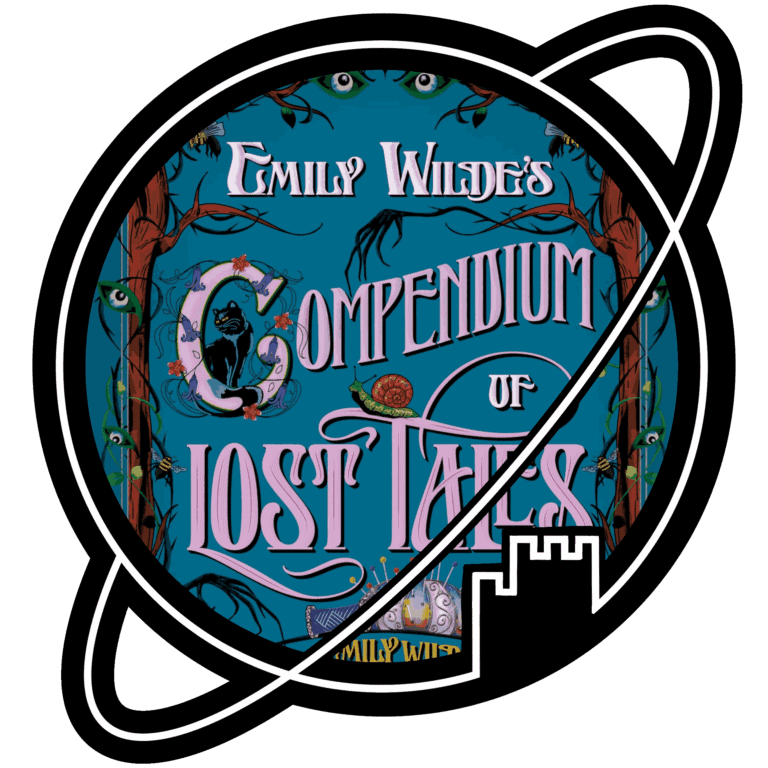

This is the third (and final?) entry in the Emily Wilde series. Finishing book two didn’t leave me, like, desperate to read the third, but I just don’t think that’s a reasonable expectation for a cosy fantasy series. This truly is one I read for the vibes.
I wasn’t obsessed with this book. Ultimately, I think the first book in the series was definitely the best.
Character wise, I wasn’t blown away. While I liked Emily as a protagonist in book one, I found myself not particularly caring for her at this point. I certainly didn’t hate her, I just felt very ambivalent about her. I also found myself enjoying Wendell a lot less this time around. There are some good side characters, but they are far and few between.
The plot once again isn’t super deep, but like I said in my reviews of the previous instalments, we’re not here for an elaborate plot. Nor do I want to nitpick about some other stuff that I didn’t really vibe with.*
Ultimately, that’s the saving grace of Emily Wilde’s Compendium of Lost Tales. It’s the third book in the series. We all know we’re mostly here for the cosy vibes. And on that count, the book delivers! Not quite as well as Encyclopedia of Faeries, but definitely enough to make this an overall enjoyable read.
*Yeah, I’ll say it. I’m tired of footnotes in fiction books. I also just finished Babel, and I don’t like it! If the information is relevant enough that I need to read it, put it in the text. If it’s not, then don’t! I keep reading these footnotes out of a sense of obligation. I GET that it makes sense for Emily as a character to include them because she’s an academic. But that doesn’t mean I want to read them.
Tagged:
See also:
- Novel written by Leigh Bardugo
- Published on april 9, 2024


I picked this book up while trying to claw my way through Brandon Sanderson’s Mistborn series. I wanted to read something easy and fun. I’m not sure this book is necessarily intended to be “easy and fun”, but I finished it in three days, so it’s doing something right.
I liked the setting – it’s historical fantasy, though I’m sure Peter would absolutely hate this for whatever inaccuracies I didn’t personally spot.
I wasn’t super blown away by the main characters or by the side characters, to be honest. Valentina was probably my favourite, and definitely had the most character growth. Luzia and her love interest (whose name I’ve already forgotten, which probably is an indication of something…) are a little bit forgettable. Bardugo is certainly capable of writing “better” characters than this, but I sort of didn’t mind it, to be honest. The romance was fine as well. Once again, a little bit forgettable but not outright bad.
Overall, if you ask me anything about The Familiar in a year or two, I won’t be able to tell you a single thing. However, I found myself sitting back down to read a bit several times a day, so it’s a solid 3.5-star rating from me.
- Novella written by Octavia E. Butler
- Published in June 1979
- Standalone


Listened to the audiobook with Kim Staunton – well read.
Octavia Butler herself named Kindred a fantasy story, but honestly it feels a little like cheating to upload a review of a novel like Kindred to our fantasy- and sci-fi-dedicated website.
Sure, the main character Dana travels through a portal to a past time and a different place, but that is no more than a contrivance to tell the story of a black woman from 1976 trying to survive at a plantation worked by enslaved persons in 1815.
That story is told expertly, though.
The introduction of a more-or-less present day character in such a different time gives Butler plenty of opportunity to confront the reader with just how different – and terrible – that time was. Because Dana is sometimes and outsider, Butler gets to reflect on some events at some distance. But as Dana spends more time in the past, she gradually get roped into the lives of the characters there and she experiences the harsh reality of being a black person on a plantation.
I’m no expert on 19th century American history, but I don’t get the impression that Butler held back much in her portrayal of the practice of slavery. I am sure she could have described much worse conditions without becoming unrealistic. But even if the Weylin plantation is not a representation of the very worst place to be as an enslaved person in America in 1815, Kindred can be difficult to read at times. It probably should be: I think Kindred has great educational value that way.
Kindred does not have a particularly special plot, and none of the time portal stuff is ever really explained. But it is thought provoking and has great characters, deep emotions, and a gripping story. And we have to give it to Butler: the why and how of the time portal might never be explained, but in true speculative fiction fashion, she does explain the rules of triggering it, meaning it never feels random.
I don’t have that much to say about Kindred as a work of speculative fiction – really, it is a literary historical fiction novel cosplaying as fantasy, and I don’t really feel qualified to comment on it from a literary perspective.
What I can say, though, is that I enjoyed the novel. It is not exactly a fun read, but it gripped me, and I hope it will grip you too.
Tagged:
See also:
- Series created by Cinco Paul and Ken Daurio
- Starring Cecily Strong, Keegan-Michael Key, Kristin Chenoweth, Alan Cumming, Ariana DeBose, Dove Cameron, Aaron Tveit and others
- Released on July 16, 2021
- 2 seasons with 6 episodes each

For a short while, I had access to one of the million streaming services that are floating around nowadays: Apple TV. This allowed me to watch fantasy and science fiction hits such as Wolfwalkers and Severance (as well as the less speculative Ted Lasso). However, to the joy of our inner musical fanatics, Jasmijn and I also stumbled upon Schmigadoon!, a musical comedy series, a genre that’s far too uncommon if you ask me. Is Schmigadoon! also speculative fiction? Well, hardly. Luckily, due to a technicality we can interpret it as a portal fantasy, allowing me to write a review without any qualms of conscience!
The two modern day main characters of Schmigadoon! are struggling in their relationship and suddenly find themselves stranded in a realm where people can burst into song and dance while conveying their deepest emotions and thoughts. One of the main characters (Cecily Strong) is familiar with musicals and can relate, while the other (Keegan-Michael Key) loathes it. Still, they’ll need each other and the inhabitants of this musical realm to eventually find their way home.
As you can imagine from the premise, Schmigadoon! is both a homage and satire to the musical genre on the whole and some of the most famous musicals in history. They manage this with a lot of self-referential humour and even a few surprisingly touching emotional arcs (though you shouldn’t expect a deep dive into the nuances and repercussions of these emotions). I can really appreciate how the writers and actors took fairly common archetypes and tropes, yet still managed to portray them in fresh ways.
Ultimately, I suppose Schmigadoon! still has more charm to those who love musicals than those who don’t. But if you do love musicals… oh boy. You’ll be spoiled with clever parodies of famous songs and the performances of musical veterans such as Ariana DeBose, Aaron Tveit, Kristin Chenoweth, Patrick Page and many others. Certainly a recommendation, if you ask me. And that leaves me with nothing clever left to say, but: “Flooby wabba noody, Rizzo, Cha Cha, Doody, Flooby nooby wicky, Zuko ‘n Kenickie”.
- Novel written by Joe Abercrombie
- Published 16 July 2015
- Part 3 of the Shattered Sea Trilogy


Listened to the audiobook with Ben Elliot. Well narrated.
I think I started Half a War the same day that I finished Half the World. I blasted through the entire trilogy in just over two weeks of listening. Perhaps that is all the review you need. If you want to learn a little more… read on.
Half a War surprisingly feels more like a sequel to Half a King than to Half the World.
The plot of Half a War has a bigger scope than the previous instalments, focussing on war and politics and not following the somewhat predictable Hero’s Journey that I noticed in the first two novels.
Like Half the World before it, Half a War introduces a new cast of characters and folds them into the ongoing narrative with the characters the reader already knows. In the case of Half a War, though the build up of characters throughout the trilogy means that there is not enough space in the novel for each of them to take their moment in the limelight.
An unfortunate victim of this is Thorn Batu, the protagonist of Half the World. One character that does shift back into focus, however, is Father Yarvi, our protagonist from Half a King.
There are a couple of scenes early in Half a King that gave me premonition of where Yarvi’s character might be headed, and I am glad that Abercrombie zooms back in on him for this final book in the trilogy, even if it is still through the eyes of other characters.
Despite the bigger scope and the amount of characters, there just about enough room for the main character’s development. Skara’s line is the strongest in the book and the one that makes it worth reading. I will not say that it is full of surprises, especially if you have read a little of Abercrombie’s work before – but it is satisfying enough to wrap the trilogy nicely.
If there is one aspect of this trilogy I would have liked to see Abercrombie do differently, it is the post-apocalyptic elements.
Sure, they do play a bigger role in Half a War than in the previous instalments, but in the end, the pre-apocalyptic technology basically takes the place of magic and provides an unearned resolution to the main characters’ central challenge. There is no significance to the fact that the world is our world. Having read the whole trilogy, I cannot help but feel that Abercrombie could have saved that idea for a story that put a little more emphasis on it.
So what is my final verdict on the trilogy? I enjoyed all three books. They were quick and easy reads, not burdened by too much build up or worldbuilding. The Shattered Sea Trilogy are unpretentious adventure fantasy novels that are far enough off the beaten track to not be forgettable. You would not be remiss giving them a shot if you are looking for something a little simpler, but still expertly crafted. On the other hand, the Shattered Sea Trilogy does not have the depth – either in character, worldbuilding or plot – to truly captivate a regular reader of fantasy.
One thing I will take away from reading this trilogy – other than the hours of entertainment the novels gave me – is that the perfect balance between pacing and depth that I like is difficult to find. Looking just at Abercrombie, I think the First Law Trilogy has great depth, but is very slow out of the gate. The Shattered Sea Trilogy is very well-paced with not a slow page in it, but lacks somewhat in those extra layers that will truly immerse a reader. I think Abercrombie strikes the best balance in Best Served Cold and The Heroes, though there is some cheating there since the First Law Trilogy has already done a lot of set up for the world they take place in. Food for thought.
Tagged:
See also:
- Novel written by Joe Abercrombie
- Published 15 February 2015
- Part 2 of the Shattered Sea Trilogy


Listened to the audiobook with Ben Elliot. Well narrated.
Because Half a King was such easy listening, I rolled straight into its sequal Half the World after, half expecting the story to focus on Yarvi and politics at the courts of Thorlby and Skekenhouse.
Instead, Half the World introduces a whole new set of characters and launches into a whole new story that is connected to Half a King but is really not a continuation of the same story, other than featuring some of the same characters.
In how it treated these characters, it reminded me of Earthsea, which also shifts the main characters of each previous book into the background for the next instalment in the series.
Half the World is a travel story, taking a crew through an arduous journey to a distant destination and back again, seeing places, meeting kings and emperors, making new friends and enemies and meeting old friends and enemies along the way.
It focuses on the character of a girl who wants to be a warrior. And while I did enjoy reading about her, the story is not particularly original. I think the book’s main let-down is that she doesn’t appear to develop much as a character. It is another indication that these are story-driven adventure books, with interesting but not necessarily deep characters and not a lot of drive to innovate.
One element of the book that could perhaps have been innovative is the post-apocalyptic aspect of the world, which is pretty much confirmed in Half the World. But it doesn’t really appear as if Abercrombie is interested in developing that aspect of the world. As a result, it can feel a little like an immersion breaker – ‘oh right, he had this post-apocalypse going on, I wonder what he is going to do with that’. I wonder whether it will play more of a role in Half a War.
Interestingly, when I thought Half the World had more or less ended and completed the hero’s journey cycle (which, again, was a little obvious), there was about a quarter of the book left to go. This added quarter at the end of the book has a couple of awkward moments that I feel might have better been carried over to a sequel. On the other hand, these scenes nicely set the stage for Half a War and also give the book a little unpredictable twist that is not unwelcome for the series.
Overall, I think the adventure and story in Half the World was enjoyable and I think the journey from the pseudo-Baltic down the pseudo-Dnieper to pseudo-Byzantium was a great setting.
I’m already a good way into Half a War, which I think tells you all you need to know!
Tagged:
See also:
Privacy Overview
| Cookie | Duration | Description |
|---|---|---|
| cookielawinfo-checkbox-analytics | 11 months | This cookie is set by GDPR Cookie Consent plugin. The cookie is used to store the user consent for the cookies in the category "Analytics". |
| cookielawinfo-checkbox-functional | 11 months | The cookie is set by GDPR cookie consent to record the user consent for the cookies in the category "Functional". |
| cookielawinfo-checkbox-necessary | 11 months | This cookie is set by GDPR Cookie Consent plugin. The cookies is used to store the user consent for the cookies in the category "Necessary". |
| cookielawinfo-checkbox-others | 11 months | This cookie is set by GDPR Cookie Consent plugin. The cookie is used to store the user consent for the cookies in the category "Other. |
| cookielawinfo-checkbox-performance | 11 months | This cookie is set by GDPR Cookie Consent plugin. The cookie is used to store the user consent for the cookies in the category "Performance". |
| viewed_cookie_policy | 11 months | The cookie is set by the GDPR Cookie Consent plugin and is used to store whether or not user has consented to the use of cookies. It does not store any personal data. |










